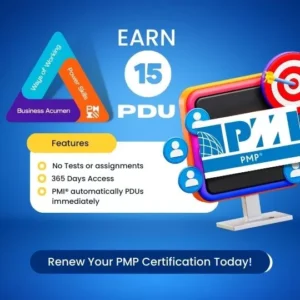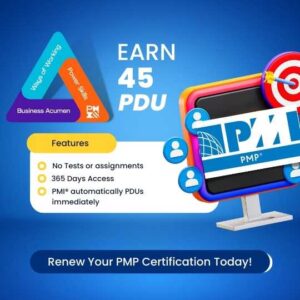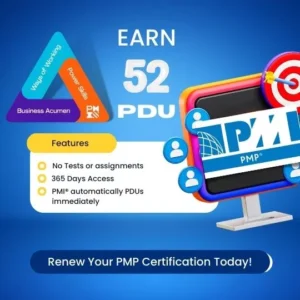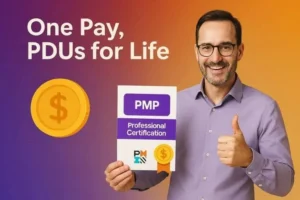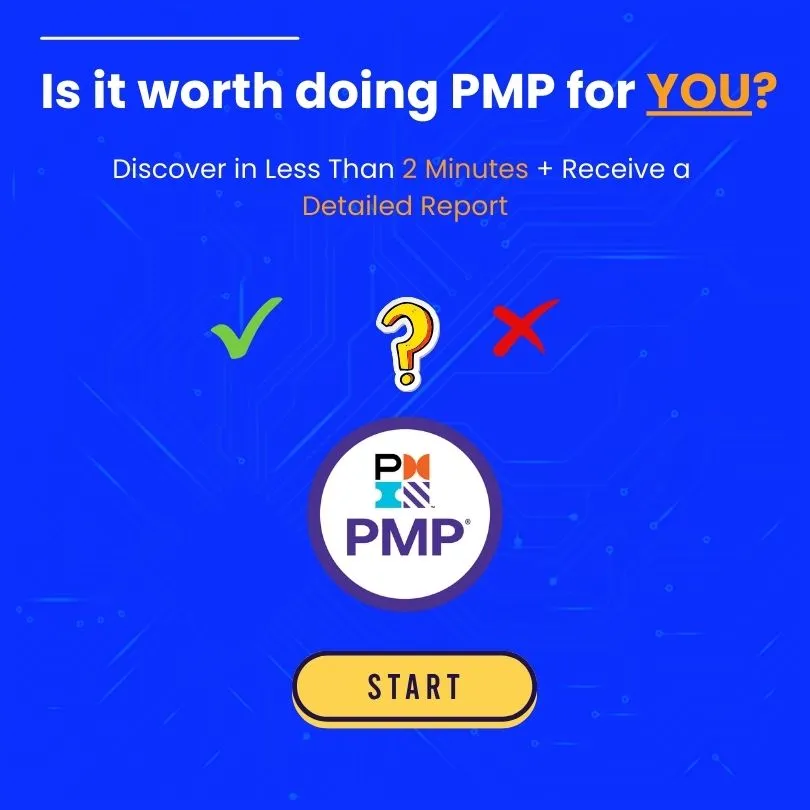In the ever-evolving world of project management, professionals often rely on certifications to demonstrate their expertise and stand out in a competitive job market. The Project Management Professional (PMP) certification, offered by the Project Management Institute (PMI), has long been regarded as the gold standard in the field. 🏅 However, in recent years, there has been a growing debate 🤔 Is PMP certification losing its value? 📉 In this comprehensive blog post, we will delve into this topic and address the key factors influencing the perception of PMP certification in the industry.
Understanding the PMP Certification
Before we dive into the debate, let’s start by understanding what the PMP certification entails and why it has been highly regarded for so long.
The PMP certification is designed for experienced project managers who want to validate their knowledge, skills, and expertise in managing projects effectively. To earn the PMP credential, candidates must meet specific eligibility criteria, including project management experience and formal project management education.
Once eligible, candidates need to pass a rigorous exam that covers a wide range of project management topics, including traditional, agile, and hybrid methodologies. This comprehensive examination ensures that PMP-certified professionals have a deep understanding of project management principles, processes, and best practices.
The PMP certification is often considered a mark of excellence, demonstrating a project manager’s commitment to their profession and their ability to lead projects successfully.
The Perception of PMP Certification
Now, let’s explore some of the reasons why there is a perception that PMP certification might be losing its value:
🌐 Increased Accessibility: With the availability of online courses, study materials, and exam prep resources, more people than ever before are pursuing PMP certification. This has led to a higher number of certified professionals, potentially diluting the exclusivity of the credential.
🔄 Diverse Project Management Approaches: The project management landscape has evolved, with agile and hybrid methodologies gaining prominence alongside traditional project management practices. Some argue that the PMP exam’s expansion to cover these new approaches has made it less specialized.
❓ Debate on Relevance: As project management continues to evolve, some professionals question whether the PMP certification remains relevant to today’s industry needs. They argue that real-world experience and skills might be more valuable than passing an exam.
Analyzing the Value of PMP Certification
Now that we’ve explored the reasons behind the perception that PMP certification is losing its value, let’s critically analyze whether these concerns hold merit:
📈 Market Demand: Despite the increase in the number of PMP-certified professionals, there is still a high demand for individuals with this credential. According to PMI’s salary survey, PMP-certified project managers earn significantly more than their non-certified counterparts, emphasizing the ongoing value of the certification.
🔄 Evolving Standards: The inclusion of agile and hybrid methodologies in the PMP exam is not a sign of devaluation but rather a response to the changing project management landscape. It ensures that PMP-certified professionals are well-equipped to handle a variety of project scenarios, making them more versatile and valuable.
📘 Skill Enhancement: Pursuing PMP certification is not just about passing an exam but also about gaining a deeper understanding of project management principles. The knowledge and skills acquired during PMP exam preparation can significantly benefit one’s career, regardless of the exam’s difficulty.
🏅 Professional Recognition: PMP certification continues to be recognized and respected globally. It serves as a clear indicator of a project manager’s commitment to professional development and can open doors to new career opportunities.
Why organizations prefer PMP
Many organizations view PMP certification as a valuable filtering criterion during the hiring process for several reasons. Let’s delve into why organizations often prefer candidates with PMP certification:
-
🎖️ Demonstrated Expertise: PMP-certified professionals have demonstrated their expertise by passing a rigorous examination and fulfilling the eligibility criteria, which typically include a minimum number of hours spent in project management roles. This assures employers that candidates possess the knowledge and skills required for effective project management.
-
🌍 Global Standard: PMP certification is globally recognized and respected. It provides a consistent and widely accepted standard for evaluating project management qualifications, making it easier for organizations to assess the capabilities of potential hires, especially when considering candidates from diverse backgrounds and regions.
-
📈 Quality Assurance: Hiring PMP-certified professionals can be seen as a form of quality assurance. Employers believe that individuals with this certification are more likely to adhere to industry best practices, leading to successful project outcomes and fewer setbacks.
-
🛡️ Risk Mitigation: By hiring PMP-certified project managers, organizations can reduce the risks associated with project failures or delays. These professionals are trained to identify and mitigate risks, which can ultimately save the company time and money.
-
🎯 Alignment with Organizational Goals: PMP certification aligns with many organizational goals related to improving project management processes, increasing efficiency, and achieving strategic objectives. Hiring PMP-certified individuals demonstrates an organization’s commitment to excellence in project execution.
-
🥇 Competitive Advantage: In competitive industries, having PMP-certified project managers can provide a competitive advantage. Clients and stakeholders often prefer to work with organizations that employ certified professionals because it instills confidence in the project’s success.
-
💲 Higher Earning Potential: PMP-certified professionals tend to earn higher salaries than their non-certified counterparts. Therefore, organizations offering competitive compensation packages may attract top talent by specifying PMP certification as a requirement.
-
📜 Client Requirements: In some industries, clients or regulatory bodies may require that projects be managed by PMP-certified professionals. This is especially common in sectors like healthcare, government, and construction, where safety and compliance are paramount.
-
🔄 Standardized Practices: PMP-certified project managers are well-versed in standardized project management practices. This common understanding of processes and terminology can facilitate communication and collaboration within project teams and across different projects in the organization.
-
🚀 Professional Development: Hiring PMP-certified professionals can contribute to an organization’s culture of continuous improvement. These individuals are more likely to engage in ongoing professional development, staying updated with the latest trends and best practices in project management.
Conclusion : Is PMP Certification Losing Its Value
In conclusion, the notion that PMP certification is losing its value is not entirely accurate. While it’s true that more individuals are pursuing this credential, the demand for certified project managers remains strong. The inclusion of agile and hybrid methodologies in the PMP exam reflects the evolving nature of project management and ensures that PMP-certified professionals remain relevant.
Ultimately, the decision to pursue PMP certification should be based on an individual’s career goals and the desire to enhance their project management skills. Whether you’re a seasoned project manager or just starting your career, PMP certification can provide you with valuable knowledge and recognition that can propel your career forward.
If you’re considering PMP certification, remember that success depends on diligent preparation, a deep understanding of project management principles, and a commitment to ongoing professional development. 💡 The value of the PMP certification is what you make of it, and for many, it continues to be a worthwhile investment in their project management journey.

